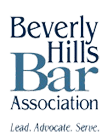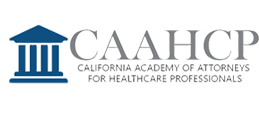California Board of Registered Nursing License Defense Attorney (BRN)

If you are a professionally licensed nurse facing an investigation or disciplinary action in front of the BRN or BVNPT, you should consider seeking the advice and representation of an experienced license defense attorney. SJ Harris has extensive experience in defending nurses against a range of accusations, including medication errors, patient mistreatment, and failure to comply with regulations.
We can assist you in navigating the investigation process and preparing for any administrative hearings or appeals. In the worst-case scenario of license revocation, we can help you pursue reinstatement or other options to minimize the impact on your career. Contact us today to schedule a consultation and learn how we can help you defend your nursing license.
Compassionate, Experienced California Nursing License Defense
Revocation of your nursing license would most likely mean the end of your nursing career. At S J Harris Law, we understand the importance of high-quality, focused professional license defense. As a former Deputy Attorney General in the Licensing Litigation Section, founding lawyer Scott J. Harris has handled many cases involving nurses, including RNs, LVNs, and nurse practitioners. At S J Harris Law, you will work with an experienced nursing license defense attorney who will do everything possible to help you retain your license.
SJ Harris’ License Defense Lawyer Protects Your Rights as a Nurse
There are a wide variety of types of nurses, many with separate license requirements and procedures for investigatory and disciplinary action. We represent:
- California Board of Registered Nursing/CA BRN Accusation License Defense
- Registered Nurses
- Licensed Vocational Nurses
- Licensed Practicing Nurses
- Advanced Practice Nurses
- Nurse Practitioners
- Certified Nurse Midwives
- Board of Vocational Nursing and Psychiatric Technicians License Defense
- Clinical Nurse Specialists
With the varied types of nursing licenses and practices, as well as the differing license requirements and standards, license issues can be confusing and even frightening for people. We understand what you are going through, and our Number 1 goal is to help you retain your professional license.
We offer comprehensive legal counseling with a focus on economy, judiciousness, and respect.
There are two nursing agencies that issue licenses in the State of California.
- California Board of Registered Nursing (BRN)
- California Board of Vocational Nursing and Psychiatric Technicians (BVNPT).
Each of these institutions is independent, has its own functions, and adheres to its own internal protocols. You can read a more detailed description of each one below.
Types of Cases Involving Nurses
1. Applications.
You may have completed nursing school and need assistance with your application. Your application will require you to disclose issues that may involve a criminal past, mental health issues, discipline by another state licensing agency, and issues involving your training and competency. Navigating the application process can be tricky and require an experienced defense attorney to ensure that you make proper disclosures and address all aspects of your application.
2. Denials and Statement of Issues.
The Boards may deny a license. There is a myriad of reasons why a license application may be denied, but they include, having a past conviction, having been disciplined by another state agency, issues involving dishonesty, fraud, misstatements on your application, trouble with your training program, mental health, and many other reasons.
3. Investigations.
The Boards are regulatory agencies. They have the power to investigate the activities of those who are engaged in nursing. This includes the unlicensed practice as a nurse, as well as the conduct of nurses that arise both in and out of the worksite. Investigations may inquire about pending criminal cases, mental health issues, your work as a nurse, competency, negligence, and other complaints. Having an experienced attorney to navigate an investigation could be the difference between the Board closing the case and the Board filing a more formal case.
4. Criminal Cases and Disclosure to Boards.
When a licensee is arrested, the Board is notified of the arrest through the Live Scan process. As a result, the Board will make an inquiry about you in most cases. You will want to consult an attorney to be sure you do not incriminate yourself with your response and that you comply with all inquiry response requirements, as well as any affirmative duty to report a criminal case.
5. Citations.
In some cases, when the Boards determine that there has been a violation of the law, they can issue citations and fines. Citations are not disciplinary in nature but serve to deter and place on notice the fact that a violation has occurred. In many ways, they are like receiving a speeding ticket, as opposed to being arrested for reckless driving or driving with excessive speed.
6. Accusation Defense.
When the Board determines that it wishes to take away or affect the licensing rights of a licensee, the Board may file an Accusation. An Accusation is a legal case that outlines the allegations (the “accusations”) that provide the basis for the Board to seek limitations on your license. As a result of an Accusation, the Board may place your license on probation, may suspend your license, or in worst case scenarios, revoke your license to work as a nurse.
There are, of course, other ancillary issues that can arise as a result of your licensure. You should consult an attorney like Scott J. Harris to ensure your nursing license is protected.
Purpose of License Defense Attorney for Nurses
Whether you need a DUI lawyer for nurses or are accused of misconduct that happened in the course of your job, an experienced attorney will work to show that you are a good person — even if you did make a mistake. Your nursing license defense attorney can argue on your behalf in front of the BRN or conduct business with them in writing or on the telephone.
If the BRN chooses to discipline, place you on probation, suspend, or revoke your license and rejects your appeal, a medical license defense attorney can argue in front of a judge or a jury for your reinstatement.
License defense cases are tricky, and your future is at stake; this is not the time to try to fight this alone.
How To Find Out If A Nurse Is Under Investigation
Both the BRN and BVNPT have Enforcement Divisions whose job it is to investigate complaints made against licensed nurses and to determine if further action should be taken with respect to the nurse’s right to practice.
Oftentimes, the BRN and BVNPT will use the Division of Investigation of the California Department of Consumer Affairs to investigate cases. Investigations within the Division of Investigation are often sworn peace offices (like police) and have the power to issue subpoenas, review records, interview you, and conduct an investigation to determine if you have violated the law.
It is important to note that you are entitled to an attorney during an investigation. Usually, the investigator will attempt to make contact with you. We have clients who have been contacted in person at their home or place of employment, who have been written via email or letter, and/or, who have been called on the telephone. No matter how you are contacted, you do not have to speak to the investigator, and you always have the right to tell the investigator that you would like to consult an attorney.
One of the fundamental premises of law is that you have no obligation to state anything that may incriminate yourself.
The Board will inform you that you likely have a duty to cooperate with an investigation. However, cooperation does not mean you have to waive your rights, and having a qualified and experienced attorney to help you navigate the investigation is worthwhile. You have the right to have an attorney to respond on your behalf, you still have your Constitutional Right not to incriminate yourself, and you have the right to participate to the extent it is advisable by your attorney.
Nursing License Under Investigation
The investigators of the nursing Boards are not nurses themselves. They are fact finders, and their role is to collect information that may assist the Boards in determining whether there has been a violation of the law. Investigators may:
- Request arrest records from police agencies.
- May request interviews with or statements from colleagues, supervisors, and patients.
- May request patient records related to patients you have provided care for.
- May request that you sit for an interview.
- May gather documents and evidence related to the BRN complaint that has been made.
What Happens After a Nurse License is Investigated.
Once an investigation is completed, the Boards have several options. They can:
- Close the matter. In this case, the investigation is completely confidential.
- They can forward the case for further review by a medical expert. In cases involving the standard of care or practice, it is common for the nursing boards to engage independent experts in the field of nursing and medicine to opine about the care you provided.
- They can issue a citation and fine.
- They can forward the case to the Office of the Attorney General (otherwise known as the California Department of Justice) to have a Deputy Attorney General file an Accusation against you. An Accusation is a formal legal case that alleges violations of the law committed by you as a licensee. It is notable, once an Accusation is filed, the case is now public record.
What are the most Common Licensing Complaints Investigated by the Boards of Nursing (BRN and BVNPT)
- Criminal Convictions (including DUI, shoplifting, domestic violence, battery, and fraud).
- Abusing a patient.
- Committing serious medication errors.
- Failing to provide the appropriate care to a patient.
- Failing to treat a mental illness that jeopardizes one’s ability to care for patients.
- Lying or omitting information on a licensing application.
- Misusing drugs or alcohol.
- Practicing beyond the scope of the nursing license (as is often the case of nurses that work in Med-Spas).
- Practicing nursing without a license.
- Your professional attitude, relations, and the manner in which the nurse comports him or herself at the job and with patients.
A California nursing license defense attorney can explain why the situation happened or create reasonable doubt about whether it happened at all. This is especially important if an administrative body such as the BRN or the Board of Vocational Nursing and Psychiatric Technicians (BVNPT) has accused you of abusing or otherwise harming a patient.
Investigations for Drug and Alcohol Abuse
Because nurses have the safety and lives of their patients in their hands, the Board of Registered Nurses (BRN) takes drug and alcohol abuse seriously. There is an Intervention Program in place for registered nurses who believe their use of drugs or alcohol are impacting their career. However, the Intervention Program is not available once a registered nurse has been disciplined by the BRN for acts resulting from untreated drug abuse, alcoholism, or mental illness. Therefore, asking for help early is crucial.
While other people (including the BRN) can refer a nurse to the Intervention Program, self-referrals are recommended. However, registered nurses cannot enter the program if they sold drugs or if their actions hurt or killed a patient. Likewise, a nurse is not eligible for the Intervention Program if they were asked to leave any treatment program for refusing to comply with the rules.
While entering the Intervention Program will not stop any investigations into a registered nurse’s conduct, it can go a long way toward keeping one’s career. Also, a nurse’s participation in the program is confidential. More than 2,000 California nurses have graduated from the Intervention Program. Requirements include 24 months of clean, random, and observed drug tests.
Investigations for Criminal Accusations
Past and present criminal accusations are initially handled by the Board of Registered Nurses (BRN). It is the nurse or nursing applicant’s responsibility, to be honest about any conduct that could be constituted as criminal. With fingerprinting technology, it is impossible to hide arrests and convictions.
Regardless of when the accusation was made, the person in question must furnish the following information:
- A written response explaining the circumstances of the accusation and any subsequent arrest and conviction. This is best done with the assistance of a California nursing license defense attorney, especially if your case is still open.
- Any documents related to your arrest or your conviction (if applicable).
- Evidence relevant to your innocence or rehabilitation.
Investigations for Patient Complaints
Patient complaints are handled by the Board of Registered Nursing (BRN) or the Board of Vocational Nursing and Psychiatric Technicians (BVNPT). The most viable complaints are not made anonymously or by people who were not directly involved in the situation. Whether the complaint is made online, via email, or via postal mail, it should include personal experiences and verifiable facts.
Specific details, including times and dates, help the investigation. Sometimes, the BRN personally handles the investigation of patient complaints. Other times, the BRN turns the case over to the Division of Investigation (DOI) with the Department of Consumer Affairs (DCA). Regardless of which administrative body handles the patient complaint, the investigative process is virtually identical.
First, the investigators will review any relevant documents and interview witnesses. The team, usually comprised of former police officers and DEA (Drug Enforcement Administration) agents, will write a report. If the patient complaint has merit, the BRN will handle it or pass it on to the Attorney General’s Office. Depending on the situation, the nurse could be suspended or barred from their occupation.
Investigations for HIPAA Violations
HIPAA is an acronym for the Health Insurance Portability and Accountability Act, which former President Bill Clinton signed into law in 1996. This law was designed to protect the privacy of patients, requiring healthcare professionals such as registered nurses to adhere to specific protocols in regard to the recording, sharing, and storage of patient information. Both Protected Health Information (PHI) and Personally Identifiable Information (PII) are included in HIPAA. This law is also known as the Kassebaum-Kennedy Act and the Kennedy-Kassebaum Act.
Multiple California agencies handle HIPAA violations, including the Board of Registered Nursing (BRN), the Department of Health Care Services (DHCS), and each county’s Department of Social Services (DSS). If a registered nurse was involved in sharing personal information, the BRN can investigate the matter.
Like with other types of BRN investigations, former law enforcement officers will collect documents and conduct interviews. If the allegation of a HIPAA violation is not substantiated, BRN will send the complainant a letter explaining this. If the investigative team believes that HIPAA was violated, then the BRN can pursue penalties against the nurse. This could include citations, fines, and suspension or revocation of the California nursing license of the person accused of the HIPAA violation.
Nursing Board Accusations And Statement Of Issues — Right To Administrative Hearing
An Accusation is when the Board of Registered Nursing (BRN) or Board of Vocational Nursing and Psychiatric Technicians (BVNPT) files a case against a nurse for issues involving criminal convictions, drug and alcohol abuse, drug diversion, untreated mental illness, lying on a licensure application, falsifying paperwork, gross negligence, or incompetence. The aim of an Accusation is to discipline a license by way of probation, suspension, or revocation of a nursing license. This is the same for all types of nursing, including RNs, NPs, Advanced Practice Nurses, and LVNs.
Similarly, the nursing board may file a Statement of Issues to deny an application for licensure for the same reasons.
Whether the nursing board sends you an Accusation or a Statement of Issues, you will also receive a Notice of Defense. This gives you 15 days to dispute the claims being made against you. You have to file a Notice of Defense in order to participate in your defense. Failure to file a Notice of Defense (also known as a NOD) can lead the Board to take action without you by default, typically resulting in the summary revocation of a license, or the summary denial of an application.
Both an Accusation and a Statement of Issues are similar to criminal complaints but do not constitute criminal charges against you. However, you could also be charged with a crime such as fraud, depending on the situation.
Any time a licensing agency files an Accusation or a Statement of Issues, you are entitled to an administrative hearing which will be held before an administrative law judge. As of 2023, these hearings are held in Los Angeles, San Diego, Oakland, and Sacramento. However, with Covid and the new technologies being used in law, many of the hearings are held remotely using video conferencing.
Attorney Scott J. Harris has been involved with 1000s of licensing cases, participated in hundreds of administrative hearings, and understands the unique evidentiary issues, strategic nuances, and important legal issues to address at hearings.
It is important to take proactive steps in protecting your license because it is so difficult to get it reinstated, especially if a board or a judge revokes it. An appropriately addressed response to an investigative inquiry may help you avoid the issuance of an Accusation or Citation. This can help save your career and prevent personal embarrassment. An experienced and knowledgeable nursing license defense attorney like Scott J Harris can help guide you through the process, regardless of your guilt or innocence.
Nursing Licenses and Substance Abuse
Substance Abuse Issues — Legal Help, No Judgment
Many of our cases involve abuse of alcohol or drugs, often in relation to an arrest for DUI (driving under the influence). In most cases, the substance abuse issues are the subject of the investigation, or they contributed to the problems that led the board to action. At S J Harris Law, our nursing license lawyers do not consider it our job to judge clients. Our job is to hear their concerns and help them retain their licenses and careers.
We also represent nurses in cases involving deficient record-keeping and standard-of-care issues.
Contact a Proven Nursing License Defense Attorney Today
No matter who you are or what you have done, S J Harris Law is ready to help you. His office is a judgment-free zone. Scott J. Harris understands that you have a lot more to lose than just a job. You may be burdened with student loan debt and are now facing having to pay for an education that you might no longer be able to use. Perhaps you are also a member of the community or religious boards and are afraid that your peers will reject you if you lose your professional nurse license.
You simply do not want to start your career over, but you know that’s a possibility. Whether you are a parent or a future parent, you are also worried about how losing your registered nursing license will impact your family.
S J Harris Law is ready to stand up for your rights, even if you are technically guilty of the offense of which you have been accused. He will try his best to keep your business out of a courtroom, but if he has to go to court he has the experience to do so.
It all starts with a free, confidential consultation with our defense lawyers. Fill out the form or call 323-794-0701.








